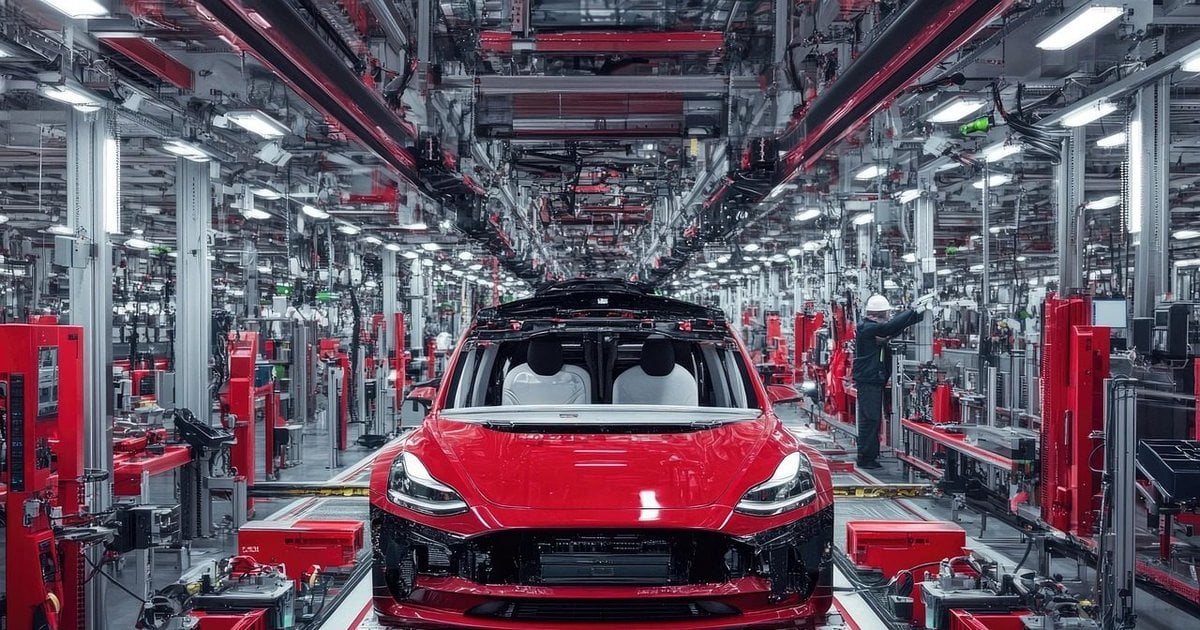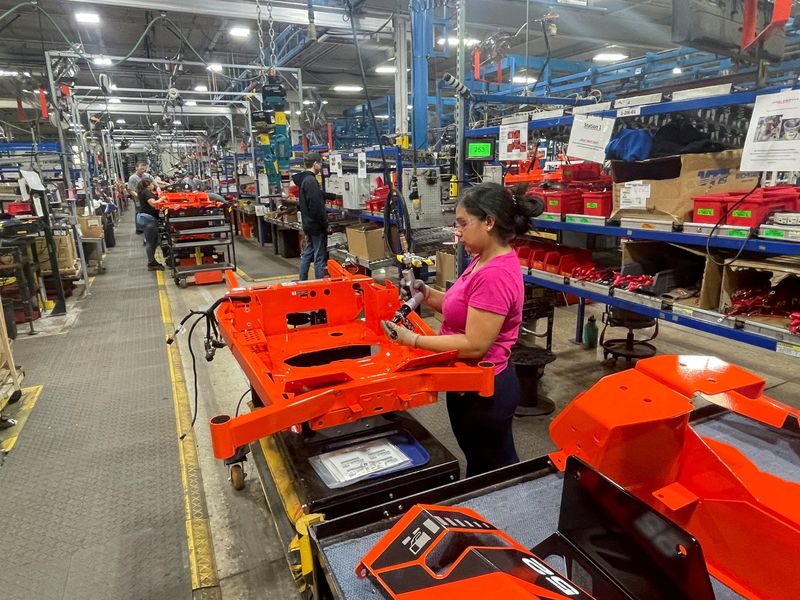Beyond the Factory Floor: Rethinking America's Industrial Destiny
Manufacturing
2025-04-10 22:12:47Content

When we think about economic powerhouses, manufacturing often steals the spotlight. But the real hero of America's economic success story is actually the services sector - a dynamic, innovative landscape that drives growth, creates jobs, and shapes the modern economy.
Services aren't just a side note; they're the primary engine propelling the United States forward. From cutting-edge technology consulting to healthcare, finance, entertainment, and digital platforms, services represent a staggering 70% of the nation's economic output. This isn't just a statistic - it's a testament to the incredible adaptability and creativity of the American workforce.
Unlike traditional manufacturing, which has faced challenges from global competition, the services sector continues to evolve and expand. Tech companies, professional services firms, healthcare providers, and digital platforms are constantly innovating, creating high-value jobs that require sophisticated skills and knowledge.
The beauty of services lies in their flexibility and scalability. They can rapidly respond to changing market demands, leverage technology, and create value in ways traditional industries cannot. From Silicon Valley startups to local consulting firms, services are driving economic transformation, attracting global talent, and positioning the United States at the forefront of the global economy.
As we look to the future, the services sector will only become more critical. It's not just an economic sector - it's the heartbeat of American economic innovation and potential.
The Silent Economic Revolution: How Services Are Reshaping America's Financial Landscape
In an era of rapid economic transformation, the United States is experiencing a profound shift that challenges traditional notions of economic growth. While manufacturing once stood as the cornerstone of American economic might, a new paradigm is emerging—one where services have become the true powerhouse driving national prosperity and innovation.Unleashing the Potential: Services as the New Economic Frontier
The Evolving Economic Ecosystem
The American economic landscape has undergone a remarkable metamorphosis in recent decades. Traditional manufacturing, once considered the backbone of economic strength, is gradually giving way to a more dynamic and flexible service-driven economy. This transformation represents more than just a statistical shift; it's a fundamental reimagining of how value is created, distributed, and sustained in the modern world. Services have emerged as a critical driver of economic growth, encompassing a vast array of industries that extend far beyond traditional boundaries. From technology and healthcare to finance and creative industries, the service sector has become an intricate web of innovation, connectivity, and economic potential. Unlike manufacturing, which often relies on physical production, services thrive on intellectual capital, technological expertise, and human creativity.Technology and the Service Economy Revolution
The digital revolution has been a primary catalyst in propelling services to the forefront of economic development. Cloud computing, artificial intelligence, remote work platforms, and advanced communication technologies have dramatically expanded the scope and reach of service-based industries. These technological advancements have not only created new economic opportunities but have fundamentally restructured how businesses operate and generate value. Companies are increasingly recognizing that their competitive advantage lies not in physical production, but in their ability to provide sophisticated, technology-driven services. This shift has led to the emergence of global service networks that can operate seamlessly across geographical boundaries, creating unprecedented levels of efficiency and innovation.Economic Implications and Future Projections
The rise of services as an economic engine carries profound implications for workforce development, education, and national economic strategy. Traditional skills are being rapidly replaced by digital literacy, adaptability, and complex problem-solving capabilities. Educational institutions and professional training programs are being compelled to reimagine their curricula to prepare workers for this new economic reality. Moreover, the service economy offers greater resilience and adaptability compared to manufacturing-dependent economic models. During economic downturns, service industries have demonstrated a remarkable capacity to pivot, innovate, and maintain economic momentum. This flexibility represents a significant strategic advantage in an increasingly unpredictable global economic environment.Global Competitiveness and Innovation
As the United States continues to position itself in the global economic arena, the service sector emerges as a critical component of national competitiveness. By leveraging technological innovation, intellectual capital, and a culture of entrepreneurship, American service industries are setting new standards of excellence and efficiency. The transformation extends beyond mere economic metrics. It represents a fundamental reimagining of work, value creation, and economic potential. Services are no longer a supplementary sector but the primary engine driving economic growth, innovation, and national prosperity.Challenges and Opportunities Ahead
While the service economy presents immense opportunities, it also introduces complex challenges. Issues of workforce training, technological integration, and maintaining competitive edge require strategic national approaches. Policymakers, educational institutions, and business leaders must collaborate to create ecosystems that nurture and support this evolving economic landscape. The journey from a manufacturing-centric economy to a service-driven model is not just an economic transition—it's a profound cultural and technological transformation that will define America's economic narrative in the 21st century.RELATED NEWS
Manufacturing

Cutting-Edge Manufacturing: Thomas County Schools Secure Innovative Grant to Boost Student Skills
2025-05-05 00:34:59
Manufacturing

Steel's Comeback: How Trump's Tariffs Are Leveling the Industrial Battlefield
2025-03-06 17:36:50
Manufacturing

Industrial Revival: Norway's Manufacturing Sector Springs Back to Life in February
2025-04-07 06:16:43





